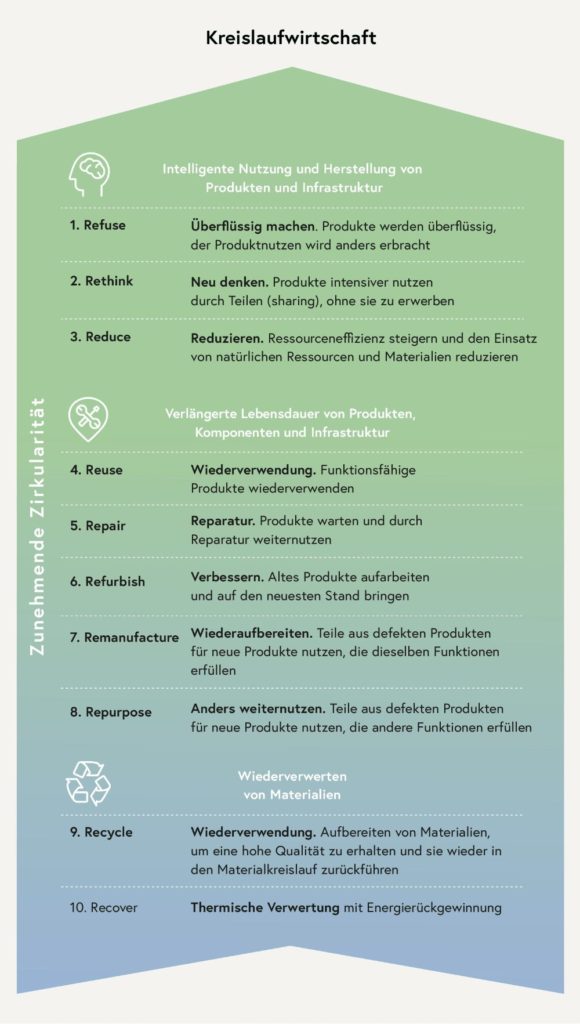A draft for the Austrian circular economy strategy is available. R.U.S.Z is involved in the development process as a stakeholder and has commented on the draft of the ministry
The Climate Protection Ministry presented a draft for an Austrian circular economy strategy at the end of 2021. This was preceded by a stakeholder process led by the Federal Environment Agency, which involved various "early adopters" of the circular economy in Austria. The R.U.S.Z as pioneer company in personam Sepp Eisenriegler also provided its expertise in workshops and in-depth interviews.
The aim of the process is to identify general and sectoral challenges and obstacles as well as enabling factors on the path to the circular economy, and to obtain strategic expertise and proposals for action. The results are documented on the ministry's homepage.
R.U.S.Z highly welcomes the open and participatory development process as well as the present draft of an Austrian circular economy strategy.
The latter is ambitious because it formulates absolute reduction targets for material flows, focuses on avoidance, on high-quality products and services, and on the intensive and long service life of products through repair and reuse, and thus goes beyond the pure recycling of material flows (in the sense of recycling).
However, we believe there is still room for improvement in the formulation of objectives, strategic framework conditions and concrete measures, which we have documented in our statement on the draft to the Ministry.
The 5 most important points of our statement
(1) The topic of social inclusion is hinted at but not elaborated on. Here we refer to the current AK study Circular Economy and Material Participation: Building blocks for a broad-based transformation from a social inclusion perspective. This study shows what companies and policymakers in the circular economy need to consider to ensure that their offerings are attractive to all social groups.
(2) There is a lack of recognition of the different valence and circularity of the circular economy principles and their prioritization in terms of the strategy. The focus should be more on avoidance, smart (manufacturing) and intensive use and extension of useful life than on recycling of materials as fuel or secondary raw material ("Recycle" and "Recover"). Disposal, recycling and incineration are the last resort, but repair and reuse are the supreme discipline of the circular economy!

(3) To promote the longevity of electrical appliances (product lifetime, repair and re-use), a combination of regulatory, fiscal and awareness-raising measures is needed, which must be enforced at national as well as EU level. These include: the extension of the Ecodesign Directive, mandatory manufacturer's warranty declarations, standardized spare parts, repairability index, strengthening of market surveillance and consumer protection at EU level and domestically, VAT reduction on and tax deductibility of repair services, and a list of measures to promote the repair sector and repair initiatives.
R.U.S.Z highly welcomes the imparting of knowledge about the circular economy at all levels of education as well as the introduction of the nationwide repair bonus for electrical and electronic equipment and further suggests the training of repair specialists.
(4) As far as repair and reuse are concerned, there is generally a certain discrepancy between formulated objectives and estimated measures. Here, unfortunately, the draft falls short of the proposals that were developed in the stakeholder process.an.
(5) The evaluation period of 5 years definitely seems too long to us, considering that material consumption is already to be reduced by 25% by 2030. In order to be able to take countermeasures in good time in the event of undesirable developments, we propose a period of 2 years, analogous to the implementation of the National Energy and Climate Plans in the EU.
Further Information (in german):